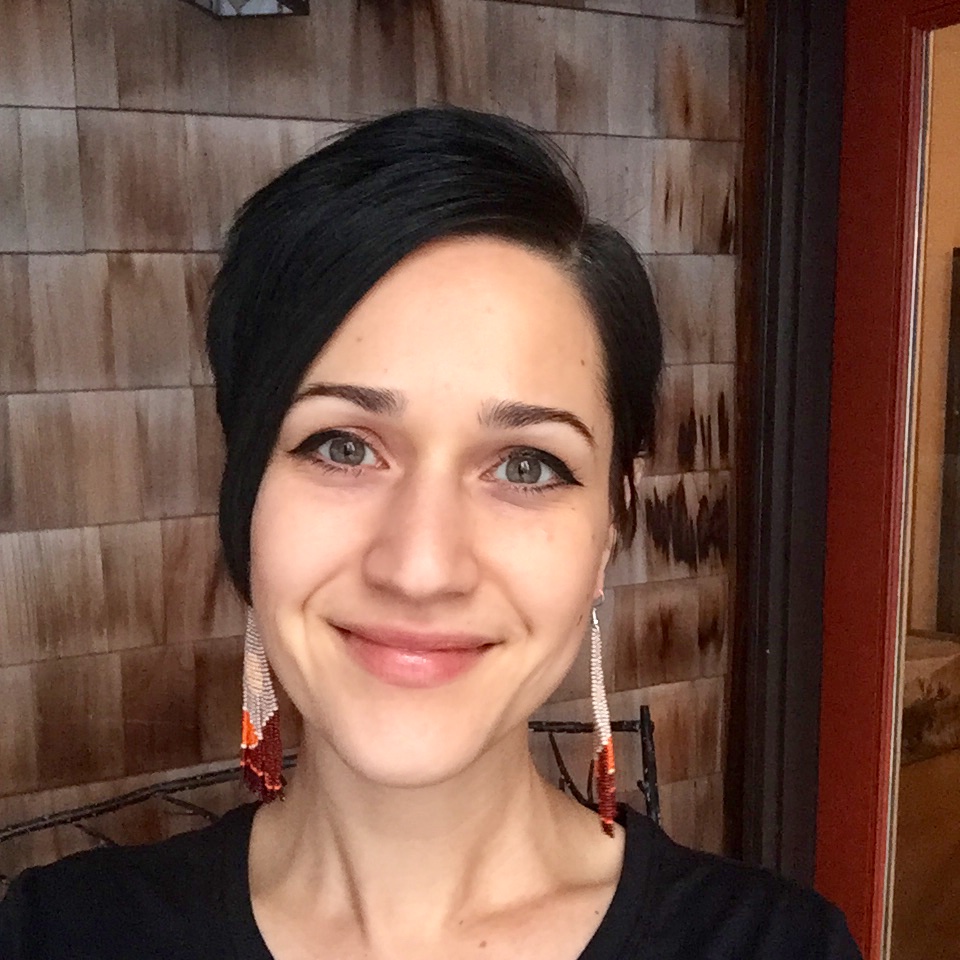
I turned to leave the coffee stand, then paused. There had been a problem with my order, but the barista had gone above and beyond to ensure that my drink was made properly. Not only had she been helpful, but she had also been happy, her demeanor reflecting the summer sun that was shining down on the festive outdoor venue. She had turned what could have been a stressful experience into a pleasant one, and, to show my appreciation, I decided to give her an extra tip.
Steaming cup of black coffee in one hand, I felt benevolent and generous as I used my other hand to press money into her palm. But as I walked away from the coffee stand, I heard the barista and two other customers laughing and talking—about me. They were making fun of the size of my gift.
The satisfaction I had felt when giving my tip instantly turned to mortification. Knowing that I had offered something I thought was valuable, only to have it demeaned and mocked, left me feeling exposed and embarrassed, and at that moment, I wanted nothing more than to disappear the way a sugar cube does when it’s dropped into hot tea. So, heart pounding in my chest, I fled the area as fast as I could without scalding myself with my near-boiling Americano.
Feeling Not Good Enough
You can imagine my relief when I woke up and realized that this encounter was just a bad dream! Yet, though the dream was over, an uncomfortable feeling of vulnerability lingered. As I considered the dream, I wondered, Why would I dream this? What does it mean? What, if anything, about my real life does it reflect?
Immediately, I thought of a recent situation in which I’d felt the same feelings. In this real-life situation, I’d given the best I could offer of my time, energy, and expertise. And though the people I interacted with were kind and positive—there were no snarky comments or snickers to be heard—after sharing, I felt exposed and a little embarrassed. Was what I offered good enough? I wondered. Could I have done a better job? Could I have been more helpful or more knowledgeable? Do others secretly think I’m a loser?
As I pondered these feelings, I felt God whisper, “Who is this about? You or Me?” I realized that I had fallen into the trap of thinking I had to be perfect to help people and that the end result depended on me and my ability. But that’s not what the Bible teaches, is it? In 1 Corinthians 3:6-7, the apostle Paul says, “I planted the seed in your hearts, and Apollos watered it, but it was God who made it grow. It’s not important who does the planting, or who does the watering. What’s important is that God makes the seed grow [emphasis added]” (NLT).
When I give of my time, money, love, or creativity, I am planting seeds, but what happens after I give is up to God. He is the One Who makes our seeds grow. Yes, He wants us to do our work with excellence, and He wants to move through the gifts He’s given us, but ultimately, it’s not about my abilities, gifts, or finances. Rather, it’s about me offering what I can and then trusting God to work through my humble offerings to bring hope, healing, and transformation to the people around me.
Remembering this brings such a feeling of freedom and peace! When I fix my eyes on God’s abilities rather than my limitations, I find I can release self-analysis and self-criticism and accept my imperfections.
How about you? Do you, too, struggle with analyzing your abilities and wondering if you what have to offer is good enough? If so, here are six more Scripture passages that encourage me to stop striving and trust God’s ability to make what I have grow. I hope they encourage you too!
“Each time he said, ‘My grace is all you need. My power works best in weakness.’ So now I am glad to boast about my weaknesses, so that the power of Christ can work through me. That’s why I take pleasure in my weaknesses, and in the insults, hardships, persecutions, and troubles that I suffer for Christ. For when I am weak, then I am strong.” (2 Corinthians 12:9-10, NLT)
It’s so easy to get discouraged about our weaknesses, but when we bring them to God, He strengthens us and uses our weaknesses to display His glory!
“‘Not by might nor by power, but by my Spirit,’ says the Lord Almighty.” (Zechariah 4:6, NIV)
When speaking to Zerubbabel about rebuilding the temple, God assured him that the completion of this project did not depend on Zerubbabel’s own strength but rather on God’s—and the same is true for us!
“Do not despise these small beginnings, for the Lord rejoices to see the work begin, to see the plumb line in Zerubbabel’s hand.” (Zechariah 4:10, NLT)
We tend to equate “small” with “inconsequential.” But God loves our small offerings and our small beginnings, in part because He knows how far He can take them.
“That evening the disciples came to him and said, ‘This is a remote place, and it’s already getting late. Send the crowds away so they can go to the villages and buy food for themselves.’
But Jesus said, ‘That isn’t necessary—you feed them.’
‘But we have only five loaves of bread and two fish!’ they answered.
‘Bring them here,’ he said. Then he told the people to sit down on the grass. Jesus took the five loaves and two fish, looked up toward heaven, and blessed them. Then, breaking the loaves into pieces, he gave the bread to the disciples, who distributed it to the people. They all ate as much as they wanted, and afterward, the disciples picked up twelve baskets of leftovers. About 5,000 men were fed that day, in addition to all the women and children!” (Matthew 14:15-21, NLT)
In God’s hands, our humble offerings are miraculously multiplied and can reach so much further than we can imagine.
“‘Pardon me, my lord,’ Gideon replied, ‘but how can I save Israel? My clan is the weakest in Manasseh, and I am the least in my family.’ The Lord answered, ‘I will be with you, and you will strike down all the Midianites, leaving none alive.’” (Judges 6:15-16, NIV)
Because of his humble circumstances, Gideon thought he was the most unlikely person for God to move through. But the truth was, it didn’t matter that he was the “least” or the “weakest.” All that mattered was that God was with him and that God was going to help him save the Israelites from the Midianites—all Gideon had to do was offer what he had and obey, one step at a time.
6. Psalm 44:3
“They did not conquer the land with their swords; it was not their own strong arm that gave them victory. It was your right hand and strong arm and the blinding light from your face that helped them, for you loved them.” (Psalm 44:3, NLT)
Once again, we see that it is not our own strength or human methods that accomplish change and bring value to the world around us but rather God’s strong arm.
Finding Freedom in God’s Power
As Christians, we long to please God and bless the people around us, and in our humanness, it can be easy to think that if we’re just good enough or try hard enough, we’ll have the impact we desire. But when we fall into this trap, we must ask ourselves, “Who is this about? Me or God?” The truth is, our ability to make a difference has nothing to do with our perfection and everything to do with God’s power. His thoughts are not our thoughts, and His ways are not our ways (Isaiah 55:8-9), and He can take even our most meager offerings and use them to work a miracle in the hearts of those around us.
Whether we’re hoping to bless a barista, console a co-worker, support a family member, or encourage a friend, may we freely offer what we have while living in the freedom that comes with knowing that there’s no pressure on us to perform—all we have to do is plant the seeds and trust God to make them grow.
Photo Credit: ©GettyImages/AntonioGuillem



